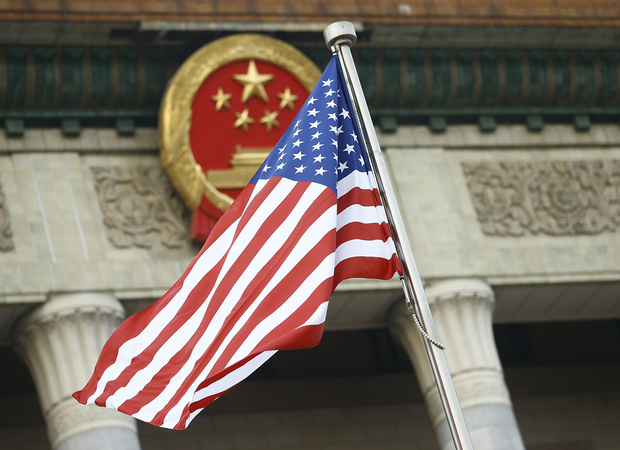Oriana Skylar Mastro is an assistant professor of security studies at the Edmund A. Walsh School of Foreign Service at Georgetown University. In August 2020, Mastro will join the Freeman Spogli Institute for International Studies, Stanford University as a Center Fellow where she will continue her research on Chinese military and security policy, Asia-Pacific security issues, war termination, and coercive diplomacy. Dr. Mastro is also a resident scholar at the American Enterprise Institute and an inaugural Wilson Center China Fellow. Mastro continues to serve in the United States Air Force Reserve for which she works as a Senior China Analyst at the Pentagon. For her contributions to U.S. strategy in Asia, she won the Individual Reservist of the Year Award in 2016. She has published widely, including in Foreign Affairs, International Security, International Studies Review, Journal of Strategic Studies, The Washington Quarterly, The National Interest, Survival, and Asian Security, and is the author of The Costs of Conversation: Obstacles to Peace Talks in Wartime, (Cornell University Press, 2019). She holds a B.A. in East Asian Studies from Stanford University and an M.A. and Ph.D. in Politics from Princeton University. Her publications and other commentary can be found at www.orianaskylarmastro.com.

Last Updated: April 28, 2025
Conversation
06.03.20
Has COVID-19 Changed How China’s Leaders Approach National Security?
While the world is reeling from the cascading shocks of the COVID-19 pandemic, China has continued a comparatively aggressive course in its foreign policy and security posture. Not only has it continued military and paramilitary activities in the...
Books
05.10.19

The Costs of Conversation
Cornell University Press: After a war breaks out, what factors influence the warring parties’ decisions about whether to talk to their enemy, and when may their position on wartime diplomacy change? How do we get from only fighting to also talking?In The Costs of Conversation, Oriana Skylar Mastro argues that states are primarily concerned with the strategic costs of conversation, and these costs need to be low before combatants are willing to engage in direct talks with their enemy. Specifically, Mastro writes, leaders look to two factors when determining the probable strategic costs of demonstrating a willingness to talk: the likelihood the enemy will interpret openness to diplomacy as a sign of weakness, and how the enemy may change its strategy in response to such an interpretation. Only if a state thinks it has demonstrated adequate strength and resiliency to avoid the inference of weakness, and believes that its enemy has limited capacity to escalate or intensify the war, will it be open to talking with the enemy.Through four primary case studies—North Vietnamese diplomatic decisions during the Vietnam War, those of China in the Korean War and Sino-Indian War, and Indian diplomatic decision making in the latter conflict—The Costs of Conversation demonstrates that the costly conversations thesis best explains the timing and nature of countries’ approach to wartime talks, and therefore when peace talks begin. As a result, Mastro’s findings have significant theoretical and practical implications for war duration and termination, as well as for military strategy, diplomacy, and mediation.{chop}
Conversation
03.01.19
The Future of China-U.S. Military Relations
The U.S.-China military relationship has been relatively stable over the past few years. Both sides’ leaders recognize that effective relations between the two militaries help prevent crises and stabilize the broader bilateral relationship. Events...
Conversation
12.11.18
Is this the Beginning of a New Cold War?
Beyond complicating trade negotiations between the United States and China, the arrest of Huawei CFO Meng Wanzhou has renewed concerns that the two countries are embarking on a new Cold War, based on economic preeminence and technological innovation...
Conversation
06.14.18
One Year After They Almost Went to War, Can China and India Get Along?
One year ago, the Chinese and Indian armies faced off at Doklam, a disputed Himalayan area on the border between China, India, and the tiny kingdom of Bhutan. While the two sides didn’t go to war over the border as they did in 1962, tensions were...
Conversation
12.19.17
Trump’s National Security Strategy and China
On December 18, U.S. President Donald J. Trump announced the United States’ new national security strategy. He called China a “strategic competitor,” and, along with Russia, called it a “revisionist power.” Those two nations, Trump said, are...
Conversation
08.29.17
Is the United States Still the Predominant Power in the Pacific?
In late August, a U.S. destroyer collided with an oil tanker—the fourth such accident for the U.S. Navy in Asia since January. Meanwhile, President Donald Trump has increased troop commitments in Afghanistan, threatened to strike North Korea with “...



